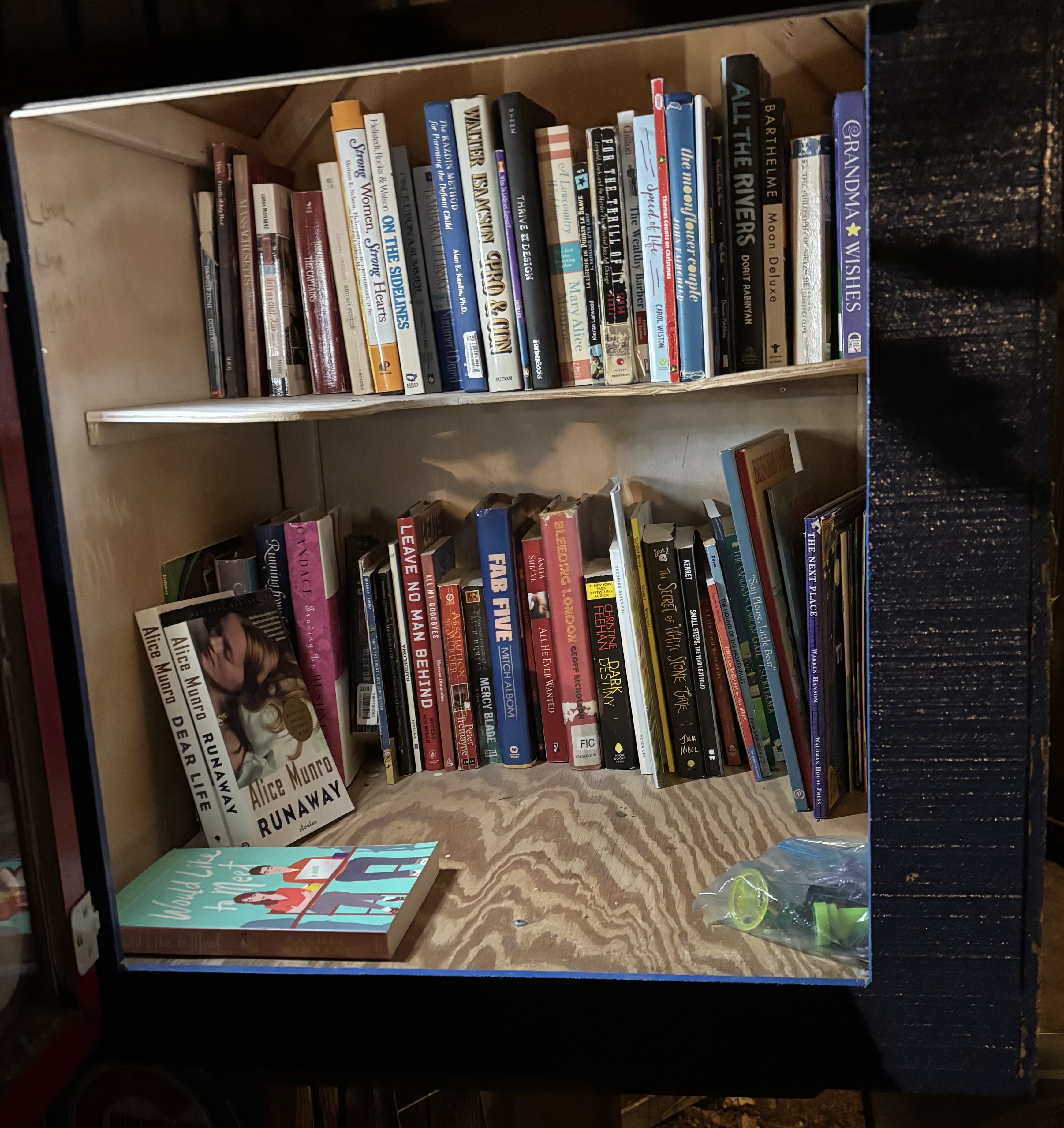Back To The Book Barn

One day a few weeks ago, I stumbled upon two collections of stories by Alice Munro–Runaway and Dear Life.
Found them in a book barn just up the street. Thought–man, what a find! Munro’s one of the great writers of the last 50 years–Nobel laureate. And I’d never read her–figured this would be my chance to see what she’s all about.
So, I brought both books home and dropped them on my living-room coffee table, the spot for books I’m currently or about to read.
After reading a couple of stories, I realized I had no strong affinity for Munro’s work. Didn’t find her compelling or enlightening. She certainly wasn’t fun to read. Her subjects were dreary, her characters tormented by traumas unseen.
But from time to time, I’d read a randomly chosen story—it was exercise for my brain. Her stories didn’t proceed in a linear fashion. She shifted points of view and time without warning–so it was a challenge to follow her. Like reading Murakami.
After a few weeks of this, I decided, out of curiosity, to google Munro and learn a thing or two about the author who had a prominent position on my living-room table.
That’s when I discovered there had been an hideous scandal in her life. In 1976, her second husband–a man named Gerald Fremlin–sexually molested Andrea, Munro’s 9-year-old daughter.
Now, this was not a groundbreaking revelation. The story had been well covered last year, after Andrea wrote an essay about what had happened. Obviously, I missed the coverage.
And so I learned that in 2005, Fremlin pled guilty to charges of molestation. Pretty graphic stuff. If you want to know more, google Munro. You’ll see it all for yourself.
It was sorta like reading stories by Murakami...
Here's the thing...
Andrea told her mother about the molestation in 1992. And Munro stayed with Fremlin anyway. And she stayed with him after he was sentenced. Was with him until he died in 2013–one year before she died of Alzheimer's.
Her daughter pleaded with her to dump him. But Munro said she loved Fremlin too much to leave him. Said she didn’t give a shit if he had sexually molested her nine-year-old daughter. Okay, she didn’t come right out and say that. It was more like the subtext, if you will. Pretty twisted stuff.
Reading the back story changed my attitudes about Munro and her writing. Just as my attitude about Woody Allen changed once I dug into the details of how he allegedly molested his seven-year-old adopted daughter. His movies--with their depictions of older men cultivating younger women--seemed like projections of dark fantasies. And Munro’s stories–with their unstated tormented and traumas—were reflections of her guilt and dysfunction.
I couldn’t look at her books without thinking about what her husband had done to her daughter. And how she, in turn, had ignored it.
I didn’t want to read her anymore—didn’t even want to see her face in my living room.
So I returned those books back to the book barn where I got them. As I walked away, I thought about the person who put them there before I took them home. Perhaps they’d gone through a similar metamorphosis once they’d learned Munro’s dirty secrets.
I thought maybe I should leave a note in the books–read at your own risk.
But, nah, that’s just too compulsive–even for me.
The next time I walked by that book barn, I noticed both books were gone. Most likely someone else had taken them home. Maybe they thought--oh, my goodness, two great books in mint condition. What a find! And maybe by now they have learned the creepy and demented back story. And maybe they too have abandoned her work.
I’ll let you know if those books get returned to the book barn, anytime soon.







